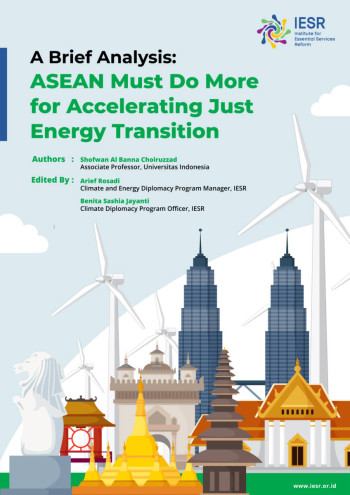This briefing paper highlights the paradox facing ASEAN: on the one hand, it aspires to be the world’s ‘growth epicenter’, while on the other, it is at the ‘epicenter of climate change’. Driven by economic growth and growing energy demand, ASEAN’s contribution to global emissions is also rising, bringing significant consequences for its population. Southeast Asia’s geographic and demographic characteristics—low-lying areas, dense populations, infrastructure challenges, and reliance on agriculture—make the region highly vulnerable to the impacts of climate change. The Asia Pacific Disaster Report 2024 even warns that climate-related disasters are on the rise, having affected more than 580 million people in the past five decades, with devastating financial losses, reaching an average Annual Loss (AAL) of US$86.5 billion, far exceeding the investment needed to meet clean energy targets.
Reviewers
Arief Rosadi
Benita Sashia Jayanti

